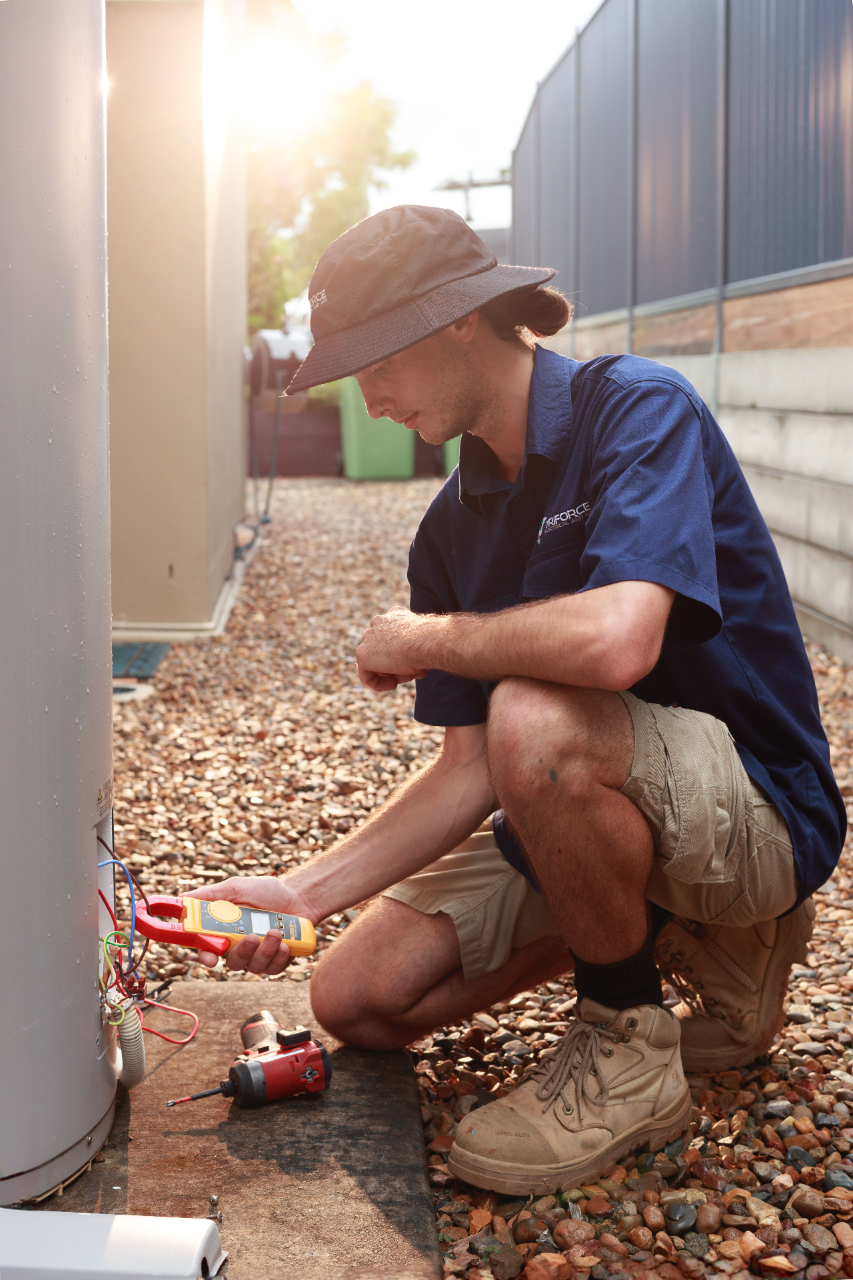No Hot Water? Here’s What Might Be Going On & Who to Call First
There’s nothing quite like jumping in the shower on a cold morning and getting blasted with freezing water instead of a nice, hot soak. When your storage hot water system stops heating properly, it can throw a real spanner in the works. The big question most homeowners ask is:
“Do I need to call a plumber or an electrician?”
Good news – we’re here to help you figure that out.
First Things First: What Type of Hot Water System Do You Have?
If you have an electric storage hot water system, it works by heating a tank of water using an electric element inside the unit – a bit like a giant kettle. These systems usually have a thermostat, heating element, and some safety devices built in.
Now, let’s take a look at the usual suspects when the hot water goes cold.
Common Reasons Your Hot Water Isn’t Heating
1. The Circuit Breaker Has Tripped
This is one of the most common – and easiest – fixes. Head to your switchboard and check if the hot water circuit breaker or fuse has tripped. If it has, try switching it back on.
👉 If it keeps tripping, that’s where we come in. Call an electrician – there may be an electrical fault that needs repair.
2. The Off-Peak Tariff Isn’t Working
Many hot water systems are on off-peak tariffs to save you money. If the meter or timer that controls this has failed, your system may not be getting power when it should.
👉 Again, this one’s for an electrician to check and fix.
3. The Heating Element or Thermostat Has Failed
Over time, the heating element inside your tank can wear out. Same goes for the thermostat, which tells the system when to heat the water. If either of these parts fail, your tank won’t heat up properly – or at all.
👉 A licensed electrician (like us) can test and replace these components safely.
4. The Tempering Valve Is Faulty
Tempering valves are safety devices that mix cold water with the hot water coming out of your tank.
They're there to stop your taps from delivering scalding water – which is great for safety, but not so great if the valve starts playing up.
Over time, tempering valves can fail or become stuck, especially in areas with hard water. The result? Your water might still be hot inside the tank, but lukewarm or even cold by the time it reaches your tap.
👉 How to Test It Yourself:
- First, make sure the system has had time to heat up (especially if it runs on off-peak power – usually overnight).
- Carefully feel the pipework at the top of the tank (don't burn yourself – use the back of your hand to check for warmth). If the tank is hot but the water at your taps isn’t, your tempering valve could restrict the flow. You can also pull the relief valve at the top of the hot water system to check if the tank is full of hot water
- If you are getting hot water from your relief valve but your internal hot water taps are supplying cold or lukewarm water, there is a good chance your tempering valve is faulty.
👉 If you suspect the tempering valve’s the problem, you’ll need a licensed plumber to test or replace it. It’s not something you can legally or safely DIY.
5. Water Leaking from the Tank
A leak from the tank is a red flag – not just for your hot water, but also for your energy bill. If water’s escaping, your system may be struggling to keep up or has shut off entirely for safety.
👉 Call a plumber for this one. It may need a tank repair or replacement.
6. The Hot Water Tank is Rusted or Split
If your tank is old (think 10–15 years or more), internal rust or corrosion could be the culprit. Unfortunately, once a tank splits, there’s no patch-up job that’ll fix it long term.
👉 Time to call a plumber. They’ll assess whether a new system is needed.

Quick Checklist: Who Should You Call?
|
Problem |
Call a... |
|
No power to unit |
Electrician |
|
Circuit breaker tripping |
Electrician |
|
Element or thermostat failure |
Electrician |
|
Off-peak power issues |
Electrician |
|
Leaking tank or pipes |
Plumber |
|
Rusted, split or burst tank |
Plumber |
|
Water pressure issues |
Plumber |
|
Tempering valve not working properly |
Plumber |
Still Unsure? Give Us a Call – We’re Happy to Help
Sometimes the line between plumbing and electrical faults isn’t so clear. That’s why we work closely with trusted local plumbers and can help point you in the right direction – or come out and investigate it ourselves.
Don’t put up with cold showers. If you’ve lost hot water and aren’t sure what to do next, give us a ring on 1300 538 270. We’ll help you get back up and running quickly, safely, and with zero guesswork.